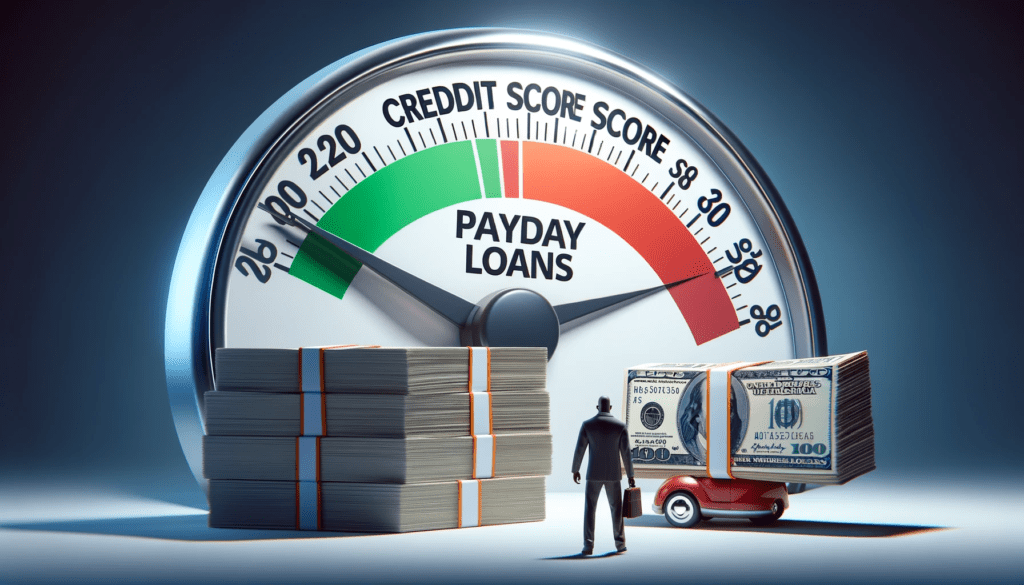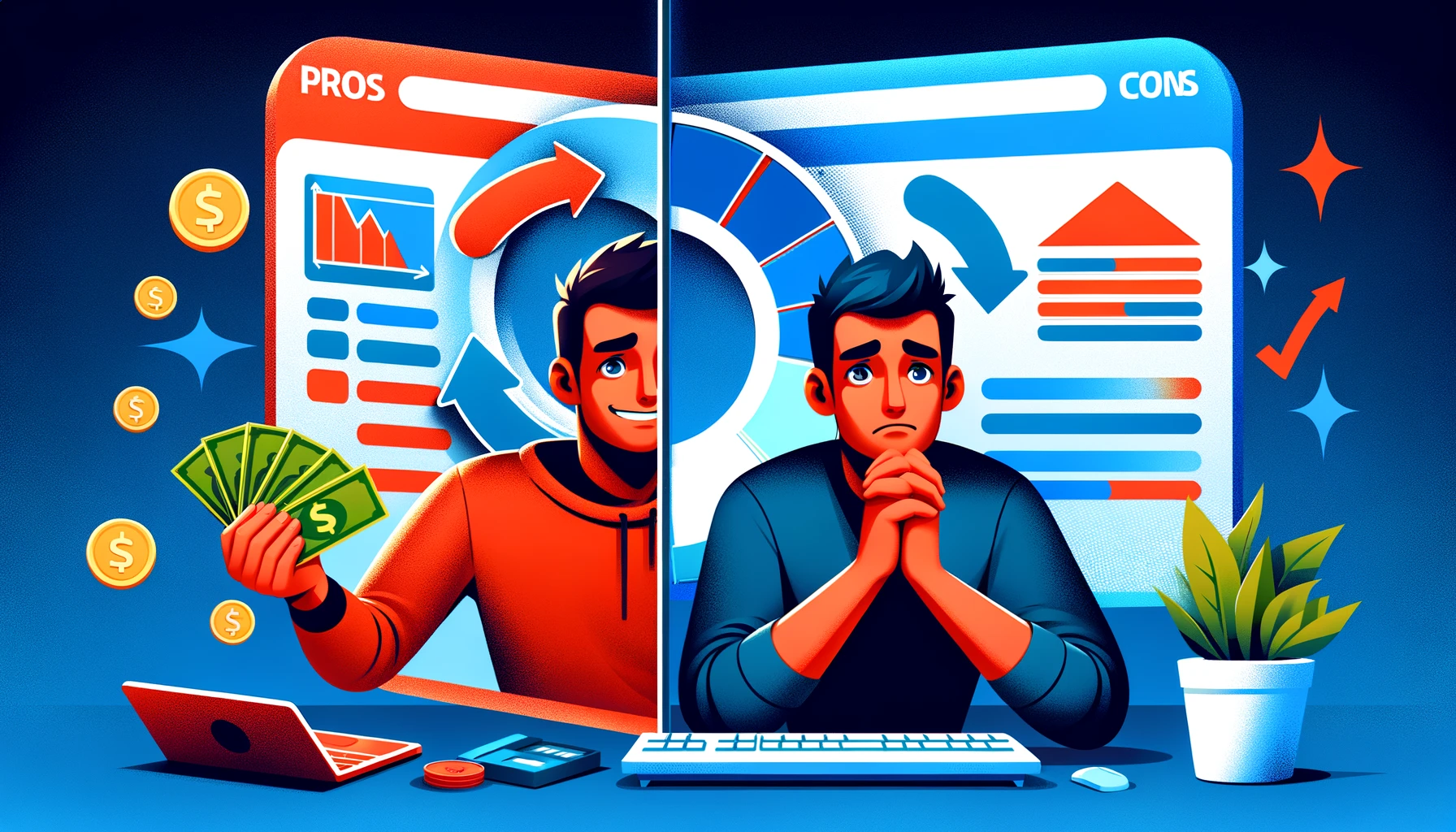Payday loans, often seen as a quick fix for financial emergencies, are short-term, high-interest loans intended to be repaid on your next payday. While they offer an immediate solution, the question remains: do payday loans affect your credit? This article delves into the pros and cons of payday loans, particularly focusing on their impact on borrowers’ credit scores.
Pros of Payday Loans
Quick Access to Funds
In times of urgent financial need, payday loans stand out for their ability to provide swift access to funds, often within 24 hours. This immediacy is a significant advantage over traditional loans, which may take days or weeks to process. For example, consider a scenario where an individual faces an unexpected medical emergency, such as a dental procedure that cannot be postponed.
In such cases, a payday loan can quickly provide the necessary funds, ensuring that critical healthcare needs are not delayed due to financial constraints. Similarly, for urgent car repairs, such as fixing a broken transmission which is essential for commuting to work, a payday loan can offer the quick financial assistance needed to resolve the issue promptly.
Minimal Qualification Requirements
Payday loans are known for their minimal qualification requirements, a stark contrast to the stringent criteria often associated with traditional bank loans. This aspect makes them particularly accessible to a wider audience, including those with less-than-perfect credit histories.
For instance, someone who might have a low credit score due to past financial mistakes or a lack of credit history, which often makes it challenging to secure a traditional loan, can still be eligible for a payday loan. This inclusivity is crucial for individuals in dire need of financial assistance who have no other borrowing options due to their credit background.
Potential Positive Impact on Credit Score
Responsibly managing a payday loan can have a beneficial impact on one’s credit score. When these loans are repaid on time, timely payments are reported to credit bureaus. This can be particularly advantageous for individuals seeking to build or repair their credit histories.
For example, someone with a sparse credit history can use a payday loan as a stepping stone to demonstrate their reliability in managing debt. By taking out a small payday loan and repaying it on time, they can start to establish a pattern of responsible credit behavior, potentially leading to improved credit scores and better borrowing terms in the future.
Cons of Payday Loans
High-Interest Rates and Fees
One of the most glaring drawbacks of payday loans is their exceptionally high interest rates and fees. These costs can be substantially higher than those of traditional loans or credit cards. For example, a payday loan might charge $15 for every $100 borrowed, which translates to an annual percentage rate (APR) of almost 400% for a two-week loan. This is starkly different from the average APR for credit cards, which typically ranges from 12% to 30%.
Let’s say an individual borrows $500; they might end up paying $575 or more at the end of the term. If they cannot repay on time, the fees can rapidly accumulate, making the total repayment amount significantly higher than the original borrowed sum.
Risk of Debt Cycle
The ease and speed of obtaining payday loans often create a risk of falling into a debt cycle. This scenario happens when borrowers find themselves unable to repay their first loan at the due date and end up taking another payday loan to cover the previous one, leading to a continuous loop of borrowing and debt.
For instance, if someone takes out a payday loan to cover an unforeseen expense but then lacks the funds to repay it due to other ongoing financial obligations, they might be compelled to take out another payday loan, perpetuating a cycle that can be challenging to break. This cycle can lead to accumulating fees and interest, making financial recovery increasingly difficult.
Negative Impact on Credit Score
While payday loans can potentially improve credit scores when managed responsibly, the converse is also true. If not managed properly, they can have a detrimental effect on one’s credit score. Late payments or defaults on payday loans are typically reported to credit bureaus. This can be particularly damaging for individuals who already have a shaky credit history.
For example, a borrower who fails to repay a payday loan on time may see a decline in their credit score, making it more difficult to secure conventional loans in the future or leading to higher interest rates on other forms of credit. This negative impact can extend beyond loans to other aspects of life, such as higher insurance premiums or difficulty in renting apartments.

How Do Payday Loans Affect Your Credit?
The way payday loans influence credit scores is multifaceted and depends largely on borrower behavior and lender policies.
Positive Impact When Repaid On Time
When a payday loan is repaid on time, it can positively affect your credit score. Responsible management of payday loans demonstrates to credit bureaus that you can handle debt effectively. For instance, consider a borrower who has a limited credit history and takes out a small payday loan. By repaying the loan in full and on time, this borrower adds a positive entry to their credit report, which can help in building or enhancing their credit score. This is especially beneficial for individuals who are trying to establish creditworthiness for the first time or recovering from past credit mistakes.
However, it’s important to note that not all payday lenders report to the major credit bureaus. Some lenders only report your loan if it goes into collections, meaning only negative interactions might be recorded. Therefore, it’s crucial to confirm whether a lender reports to credit bureaus.
Negative Impact of Late Payments or Defaults
The negative impact of payday loans on credit scores occurs when borrowers fail to repay their loans on time. Late payments or defaults are typically reported to credit bureaus and can significantly damage credit ratings. For example, if an individual takes out a payday loan and fails to meet the repayment deadline, this delinquency is reported, and their credit score may decrease. The effect of a single missed payment can be substantial, especially for those with already low scores. Additionally, if a payday loan account is turned over to a collection agency, the negative impact is further intensified, leading to a more significant drop in the credit score.(Do Payday Loans Affect Your Credit?)
This negative impact has broader implications. A lower credit score can affect a person’s ability to secure future loans, result in higher interest rates, and can even influence non-lending decisions, such as rental applications or employment opportunities in fields that consider credit history.
The Need for Careful Consideration
Given this dual nature of impact, borrowers must carefully consider their ability to repay a payday loan on time before taking one. It’s essential to assess not just immediate financial capability but also future financial stability, as the consequences of mismanagement can extend far beyond the loan itself and linger on a credit report for years.(Do Payday Loans Affect Your Credit?)
When to Consider a Payday Loan
Emergency Situations
Payday loans can be a viable option in dire financial emergencies where there are no other alternatives. For instance, unexpected medical expenses or critical home repairs that cannot be postponed.
Short-term Financial Gaps
These loans can be beneficial for bridging short-term financial gaps, especially if you are certain of repaying them with your next paycheck.
we also have a full article about what are the logical scenarios to consider a payday loan at, so you should check it out. (Do Payday Loans Affect Your Credit?)
When to Avoid a Payday Loan
Long-term Financial Solutions
Payday loans are not suitable for long-term financial needs. If you’re seeking a solution for ongoing financial struggles, considering alternatives like personal loans or credit counseling is advisable.
If Alternative Options are Available
Always consider other options before opting for a payday loan. This includes personal loans, credit cards, borrowing from friends or family, or even negotiating payment plans with creditors.
To Sum Things Up
While payday loans can provide immediate financial relief and potentially positively impact your credit when managed correctly, they also carry risks. High-interest rates, the potential for a debt cycle, and the negative impact on your credit score if not handled properly are significant cons. Borrowers should weigh these factors carefully and consider payday loans only as a last resort for emergency financial situations.


0 Comments